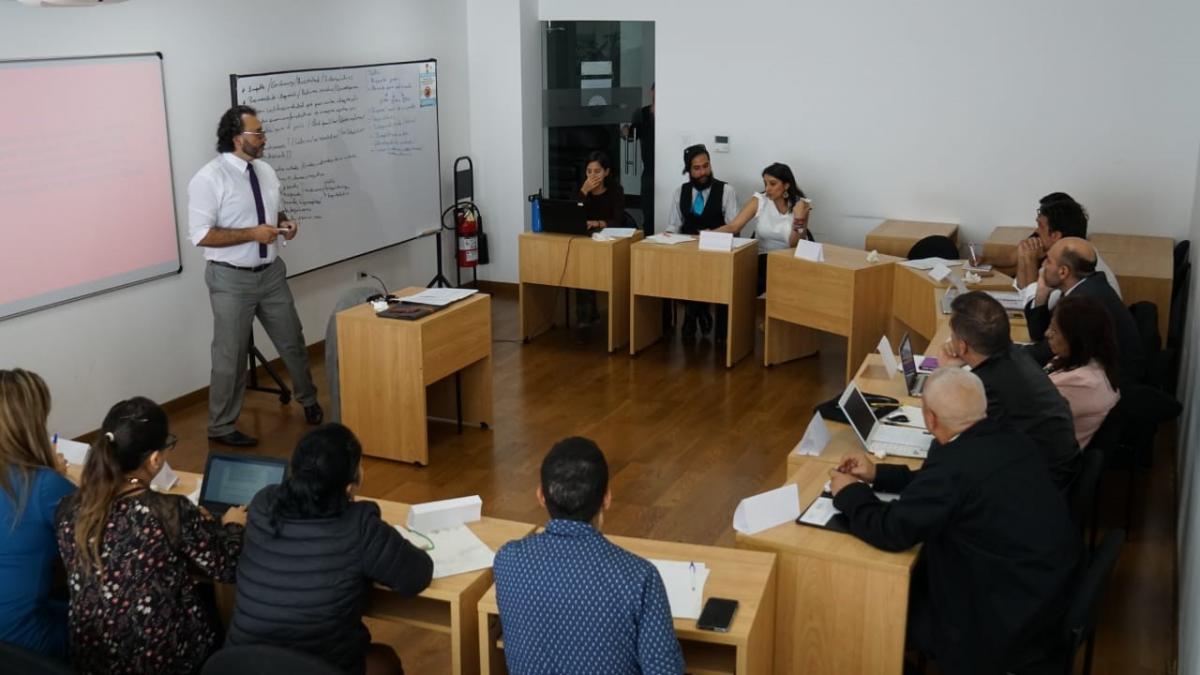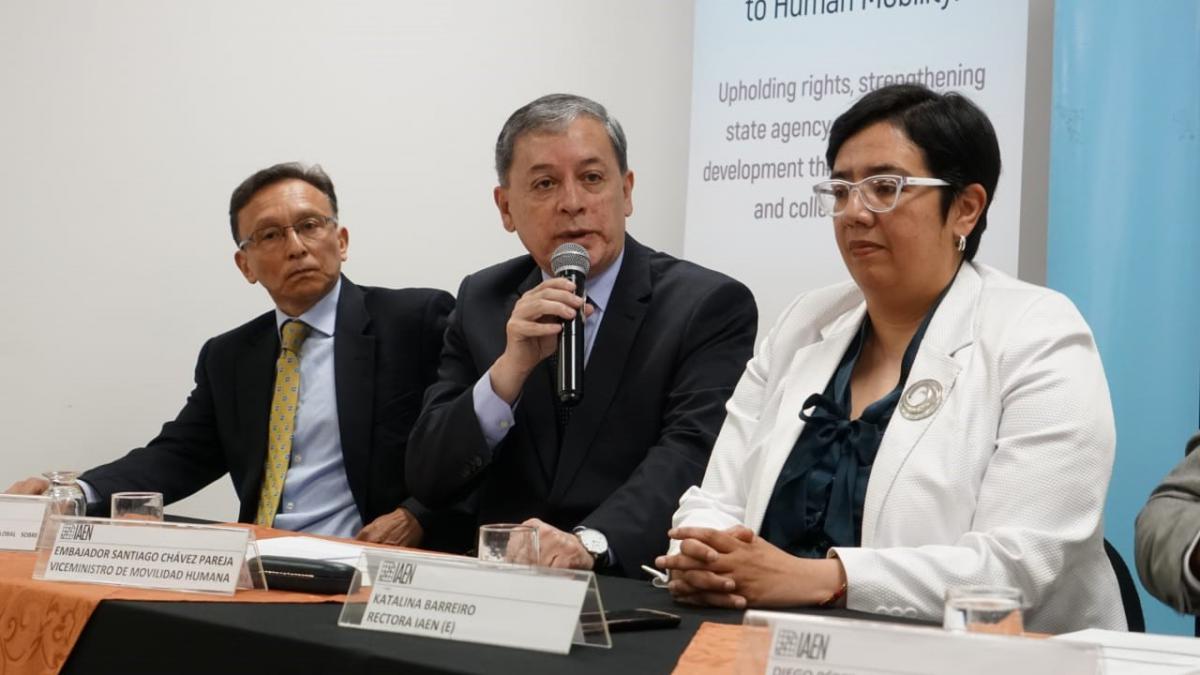First National Academic Workshop under the Ecuadorian Chairmanship of the Global Forum on Migration and Development
Post date:
Wednesday, 14 August 2019

The 2019 GFMD Chair seeks to strengthen the dialogue between all stakeholders in the process, including a more systematic participation of the academia. With this objective, the Ecuadorian GFMD Chairmanship convened the First National Academic Workshop on Migration and Development on June 27th 2019 with around 50 representatives from the academia on a national level. Held at the Instituto de Altos Estudios Nacionales (IAEN), the workshop had the following objectives:
1. to exchange perspectives on the substantive priorities of the GFMD 2019 Chairmanship
2. to foster the academia´s contributions based on their expertise in the field of migration and development
3. to strengthen the involvement of the academia in the different GFMD processes, taking into consideration the changes in the global migration governance.
During the introductory session, 2019 GFMD Chair Ambassador Santiago Javier Chávez Pareja, Vice Minister for Human Mobility of Ecuador, opened by highlighting the importance of the academia´s participation in the development of public policies based on research and evidence-based analysis. He also emphasized the need to include different stakeholders in the process of identifying solutions to the challenges in the context of human mobility.
The second session was divided into three parallel working groups, reflecting the substantive priorities of the 2019 GFMD Chairmanship as outlined in the Concept Note. The representatives from the academia participated in the working groups according to their respective research fields.

The first working group on “Coordinated responses to mixed movements: Partnerships and collective action to protect rights”, debated on providing regular pathways for migrants, how the Global Compact for Migration and the Global Compact on Refugees can contribute to solutions towards mixed movements, the importance of facilitating documentation for migrants, and what types of mechanisms on different government levels states and non-governmental stakeholders have used in the past to provide responses in view of large migratory flows. Other issues of discussion included enabling social and economic inclusion, taking into account the challenges of migrants´ access to basic services, the role of local institutions in the integration process, and the importance of labor inclusion for newcomers.
Concurrently, the second working group “Migration narratives and communication: What role, responsibility and resourced do governments have”, addressed the issues of shaping public narratives on migration and migrants, how governments develop public narratives on migration, and what media channels are used by governments to shape these narratives. Additionally, participants discussed about the ways governments use when communicating effectively with migrants. It was emphasized that is it important to think about strategies to make information more accessible for migrants, as well as to consider approaches to tackle the dissemination of misinformation on migration, among others.
The third working group “Addressing human mobility as part of urban and rural development strategies”, covered the topics on supporting arrival cities through policy coherence and multi-stakeholder partnerships, discussing about the authority cities have to establish policies on migration. In addition, the debate centered around which actors are important for the inclusion of migrants in urban areas and what policies are relevant to achieve social inclusion of migrants in urban centers. Another element of discussion included the issue of harnessing migration for rural transformation, discussing whether rural migration is a challenge or an opportunity for urban development, followed by the identification of the drivers for rural migration, the impacts that migrant remittances have on rural development and the creation of resilient cities.
In the closing session, each of the working group facilitators presented the results of the three thematic discussions. In particular, it was highlighted that scientific inputs from the academia are necessary and essential for the creation of public policies on migration. In result, the deliberations of this workshop will be reflected in an academic publication.

This workshop represents a first meeting of a series of activities planned by the 2019 GFMD Chairmanship along with the academia during the following months leading up to the Quito Summit. These preparatory activities will lead to an active involvement and significant participation of both national and regional academic actors in the Quito Summit.
